What’s up with federal and state incentives for electric cars?
We believe electric cars are great. They reduce emissions by about 75-80% compared to gasoline cars. And they cost...
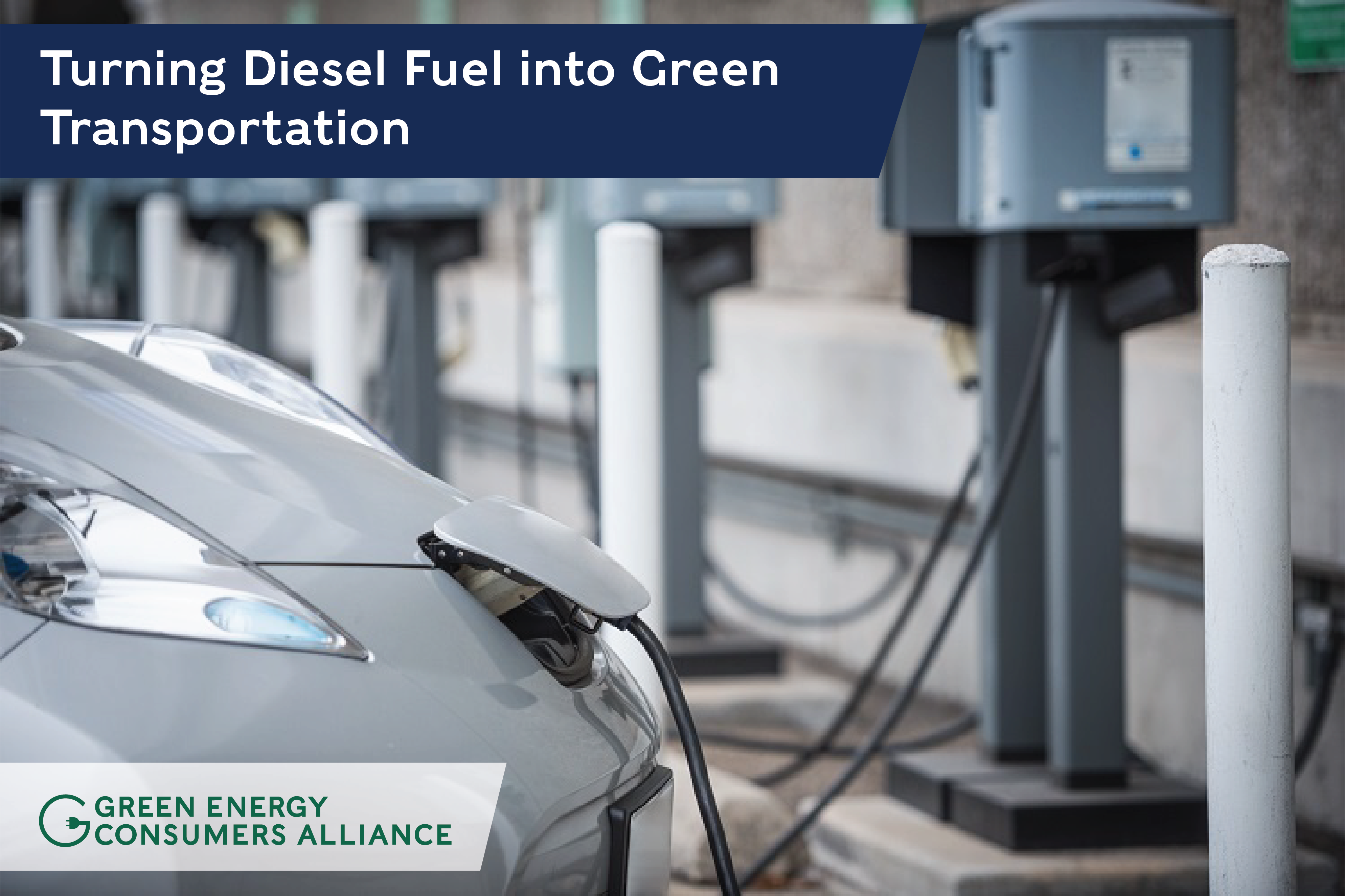
Massachusetts and Rhode Island have both announced plans on how they intend to spend funds coming from the national Volkswagen “dieselgate” settlement. We’re seeing some solid ideas on how the states can use the VW settlement money to reduce air pollution from diesel fuel. This development is akin to turning swords into plowshares. While it’s horrible that VW deceived governments throughout the world about emissions from its diesel engines, there will be two lasting benefits from the settlement. Firstly, car-makers appear to be reducing their commitment to new diesels, as VW’s experience highlights the impossibility of making low-emission diesel vehicles. Secondly, the VW settlement money will help greatly to accelerate the transition to electric vehicles.
As you will see below, much of the VW settlement money going to Massachusetts and Rhode Island will be spent on electrifying bus fleets and building out charging infrastructure. In Massachusetts in particular, there are grant opportunities to help you get access to more public charging, charging at your workplace, or charging at your multi-unit dwelling.
In 2016, the U.S. Department of Justice, acting on behalf of the U.S. Environmental Protection Agency, the State of California, and a multi-state coalition of states – led by Massachusetts and others – sued VW for unlawfully installing defeat devices in its diesel vehicles (software that allowed certain model-year VWs, Audis, and Porsches to cheat emission testing and emit more nitrogen oxide (NOx) pollution than legally allowed by federal and state regulations). As a result of the settlement of the federal case, every state in the country was eligible to receive a share of a $2.925 billion environmental mitigation trust, based on the number of VW diesel vehicles registered in the state and equipped with the defeat device software.
Rhode Island is committing most of its $14.4 million towards purchasing electric buses for the Rhode Island Public Transit Authority (RIPTA). The attorney general’s office will allocate $4.1 million to other environmentally beneficial projects.
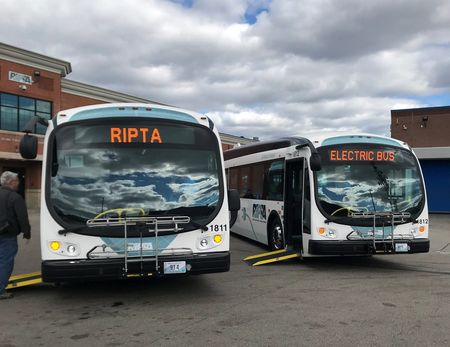
RIPTA's new electric buses at ribbon cutting, October 22, 2018
Massachusetts is dedicating the $23.5 million allocated in the Beneficiary Mitigation Plan’s first phase of funding as follows:
Details about the Massachusetts funding are available through the following links. Please note that there is a deadline of March 18 for applications to two of the programs. Applications for the other three programs will be taken on a rolling basis.
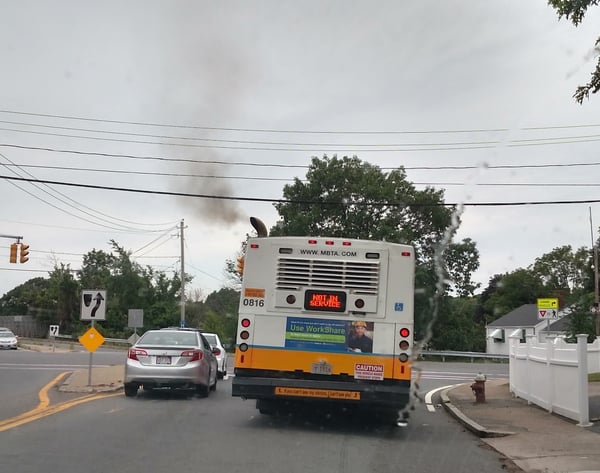
MBTA dirty diesel caught in action by our Executive Director, July 7, 2017
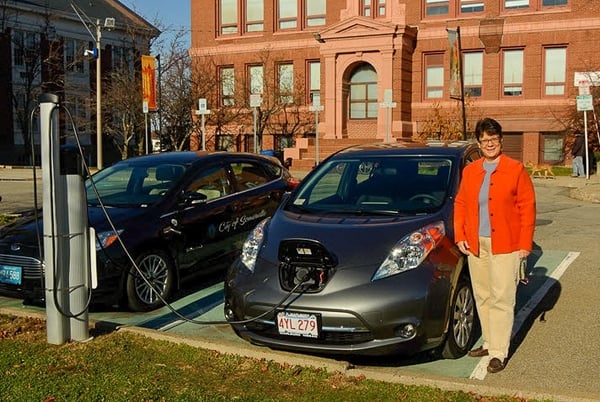
Proud LEAF-owner Mary charging up at a public charging station
As we say here, there are more public charging stations available today than people think. However, thanks to Volkswagen and some new utility programs (National Grid here and Eversource here), we are going to see a lot more charging stations built in the next couple of years. Getting around in an EV is easy today and will get much easier. So – what’s in your driveway?
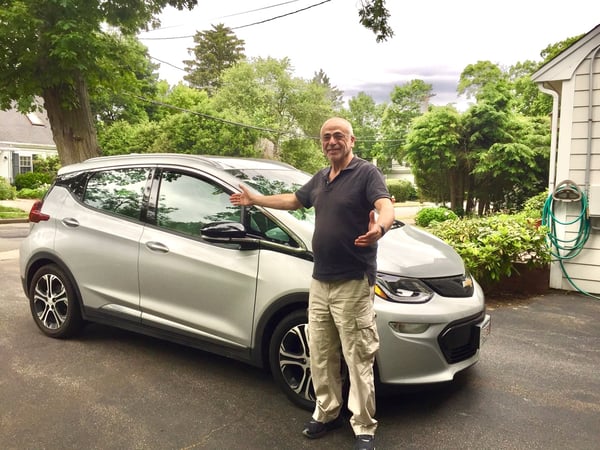
Joshua is happy with a Bolt in his driveway
We believe electric cars are great. They reduce emissions by about 75-80% compared to gasoline cars. And they cost...
On March 14, 2019, Green Energy Consumers held a webinar about upcoming initiatives, programs, and policies...
Comments